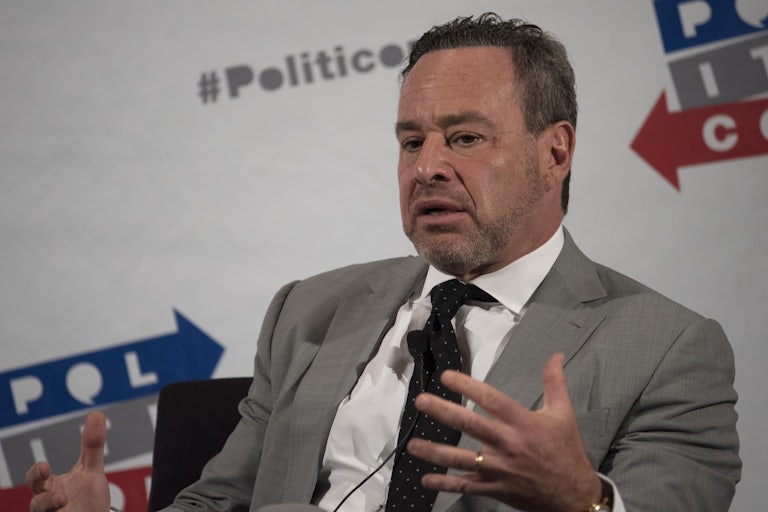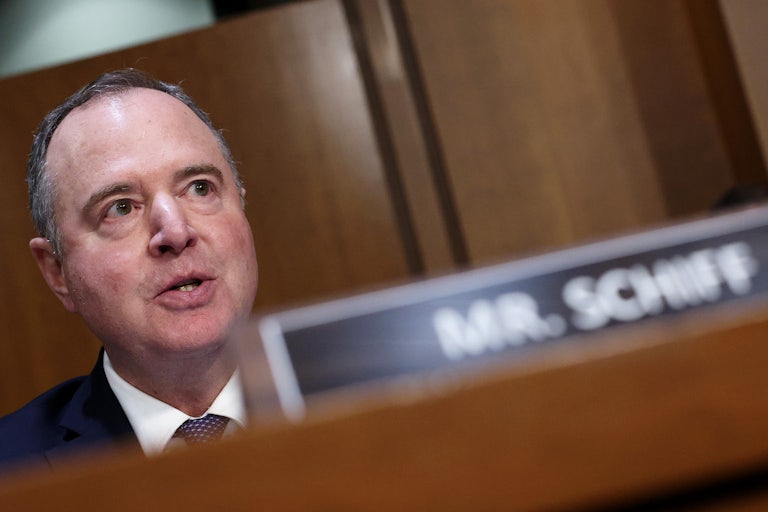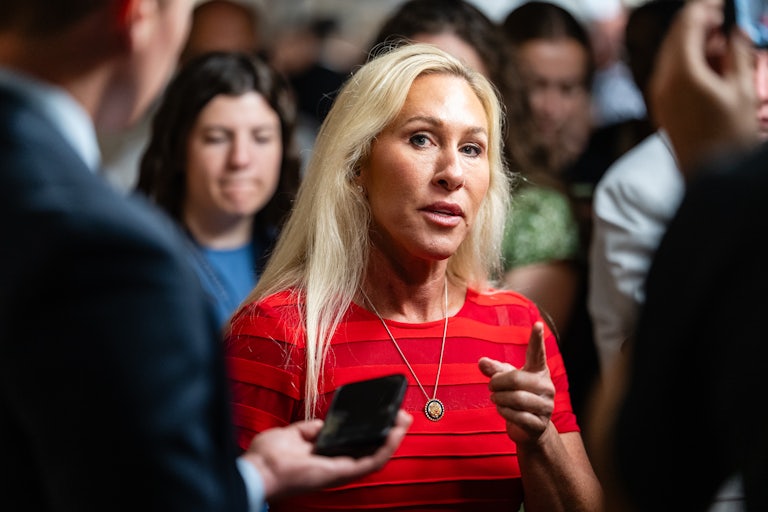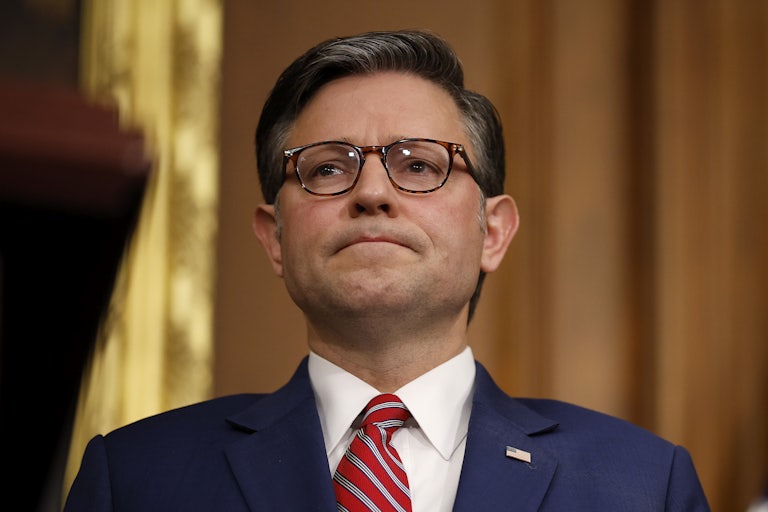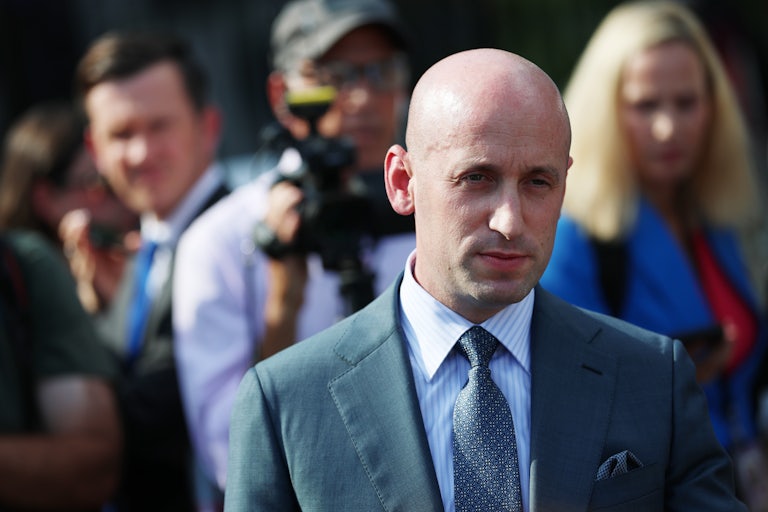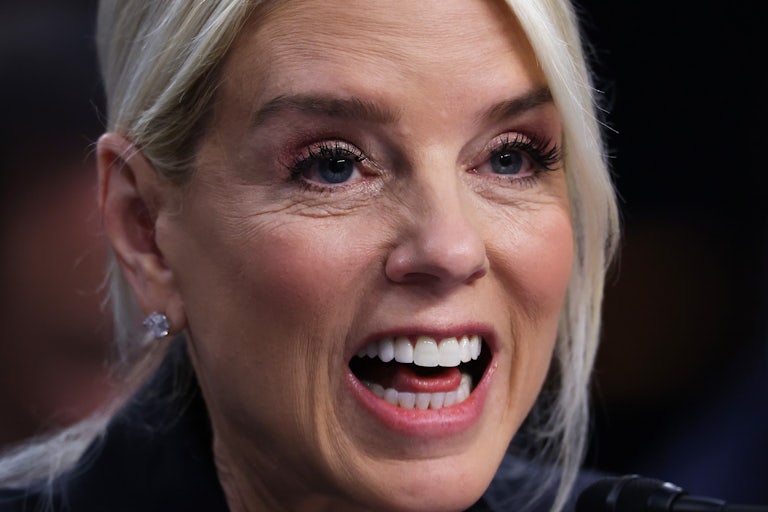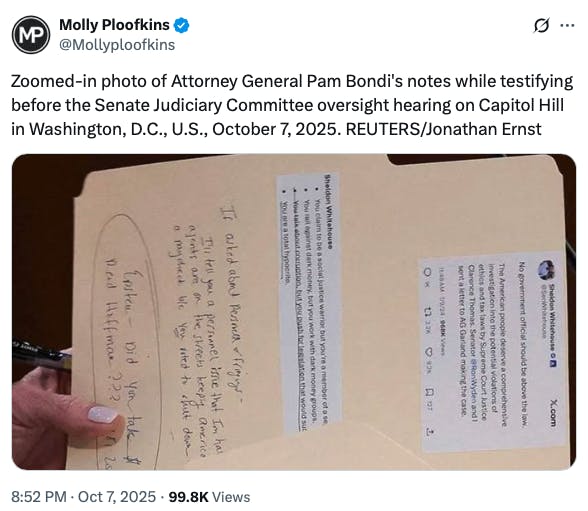Guess Which Two Cabinet Members Trump Advisers Hate the Most?
Donald Trump’s advisers are pretty clear on who they think will get fired first.

Even the Trump administration doesn’t like Pam Bondi.
The attorney general has been at the epicenter of some of Trump 2.0’s biggest scandals. In the last several months, Bondi has purged antitrust officials at the Justice Department, refused to answer critical questions in defiance of Senate oversight hearing protocol, and—most egregious to the White House—sparked MAGA outrage when her own agency issued a memo contradicting her on the existence of Jeffrey Epstein’s so-called “client list.”
All considered, Bondi now ranks as the White House’s least favorite Cabinet secretary, according to an informal survey of several presidential advisers by Wired’s Inner Loop newsletter.
“Worst, Bondi,” they begin. “2/ Bondi. 3/ Bondi. 4/ Bondi. 5/ HegsethRFKTulsiNoem.”
Just one secretary shared the unwelcome spotlight: Commerce Secretary Howard Lutnick, who, like Bondi, has also fumbled the administration’s talking points about the president and his pedophilic sex trafficker ex–“best pal.” Breaking from the DOJ’s narrative, Lutnick described Epstein to the New York Post podcast as “the greatest blackmailer ever.” He also didn’t bother trying to make Trump’s cozy association with Epstein more palatable. Lutnick referred to Epstein as a repugnant creep while recalling an instance in which he was invited by Epstein to tour his infamous East 71st Street townhouse.
“I say to him, ‘Massage table in the middle of your house? How often do you have a massage?’” Lutnick told the Post. “And he says, ‘Every day.’ And then he gets, like weirdly close to me, and he says, ‘And the right kind of massage.’
“In the six to eight steps it takes to get from his house to my house, my wife and I decided that I will never be in the room with that disgusting person ever again,” he added.
None of the Trump advisers surveyed by Wired were willing to speak about the Trump-Epstein connection, or connect the dots between Bondi and Lutnick’s sagging popularity with their handling of the scandal.
The Epstein story has remained an anomaly in Trump’s political career. For the better part of a decade, the MAGA leader became adjusted to an undyingly loyal base that rarely skews from or challenges his political vision. But Trump’s proximity to Epstein and the disgraced financier’s heinous crimes has been an outlier, prompting doubts that have undercut Trump’s influence with large swaths of his followers.
The White House’s official spokesperson brushed off the Wired story, suggesting instead that Trump’s Cabinet are beyond reproach within MAGA’s inner folds.
“The entire premise of this story is ridiculous—which is to be expected for Wired,” White House spokesperson Abigail Jackson said in a statement. “The President’s entire cabinet is working to flawlessly execute his agenda to Make America Great Again and he is pleased with each of their successes and hard work.”
